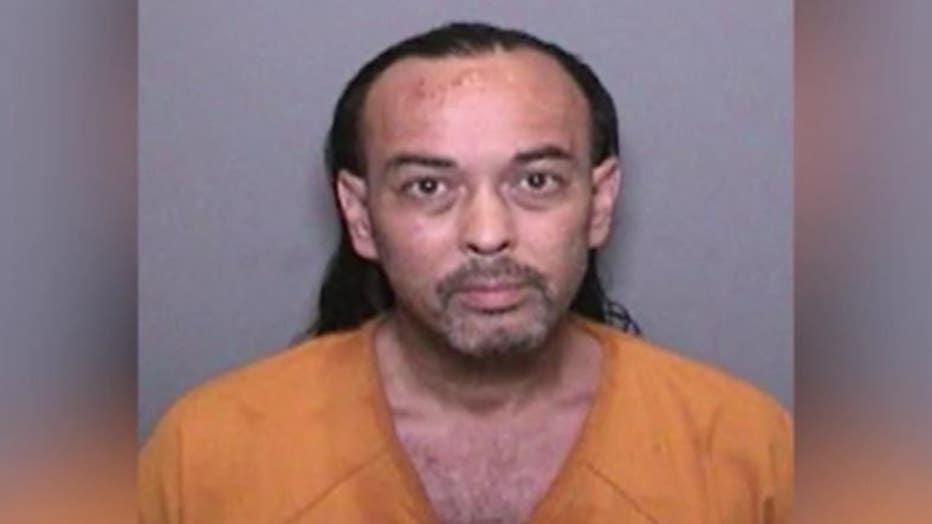Man accused of setting massive 2018 Holy Fire acquitted of arson

Man acquitted in 23,000-acre 2018 'Holy Fire'
A Trabuco Canyon man who was accused of setting fire at his neighbor's remote cabin, sparking the massive 2018 Holy Fire, was acquitted Thursday of arson charges.
SANTA ANA, Calif. - A Trabuco Canyon man who was accused of setting a blaze at his neighbor's remote cabin, sparking the massive 2018 Holy Fire, was acquitted Thursday of arson charges but convicted of making criminal threats.
An attorney for Forrest Gordon Clark, 56, argued during the trial that law enforcement experts made a "rush to judgment" in accusing him of setting the fire that burned 23,000 acres and destroyed 18 structures.
Jason Phlaum of the Alternate Defender's Office told jurors that defense experts were more thorough in their investigation of the Holy Fire's origins, concluding it began along a roadway, not in a cabin neighboring Clark's. Phlaum said the fire was more likely sparked by exhaust from a passing truck or a discarded cigarette, noting that witnesses reported seeing a white truck pass through the remote area around the time the fire began.
Prosecutors accused Clark of setting fire to the cabin of his next-door neighbor, Frank Romero on Aug. 6, 2018. Clark lived in Cabin 14 and Romero lived in Cabin 15, which were the closest residences in Trabuco Canyon, just 30 to 40 feet apart, Deputy District Attorney Dominic Bello said.

Forrest Gordon Clark
"He had the means and motive to start this fire," Bello said in his closing argument of the trial that started in April.
Bello argued that Clark had a burn mark on his shoulder when he was arrested, and while the defendant claimed to investigators he suffered it while fighting the blaze, there were no witnesses to back up that contention.
A key piece of evidence in the prosecution's case was a recording from Romero's phone, in which Clark is heard threatening to harm his neighbor about five hours before the blaze started. Sprinkled in with lewd insults on the recording were declarations such as, "Frank is a walking dead man," Bello said.
Jurors convicted Clark of felony criminal threats, but acquitted him of aggravated arson of five or more inhabited structures, arson of an inhabited structure and arson of a structure or forest. Clark faced a life sentence if he had been convicted of arson.
Orange County Superior Court Judge Patrick Donahue rejected Bello's request to continue sentencing so Romero could make a victim impact statement. Donahue said he offered Romero the chance to call him on the phone or talk to him through video conferencing about the impact of the crime before sentencing, but the judge said he could not postpone the sentencing because Clark had far more credits for custody than any possible punishment available to the defendant.
Clark had credit for 3,520 days in custody awaiting trial and the maximum punishment in the case was two years, Donahue said. Donahue sentenced Clark to two years and ruled that Clark had enough leftover custody credits to cover any parole as well.
Bello said Romero was several hours away and could not drive in to the sentencing in time on Thursday. He also relayed that he didn't "feel comfortable" making the victim impact statement on Thursday, Bello said.
"I don't think I'm in a position to keep Mr. Clark in custody" any longer for no reason, Donahue said. "If Mr. Romero wants to write me a letter, that's fine."
Donahue said he would not reduce the felony to a misdemeanor, however.
"It was a lengthy four-minute threat and a threat to the life of Mr. Romero," Donahue said, adding that he recalled how "shook up" Romero appeared to be by the threats when he testified in the trial about them.
Bello asked Donahue to at least order Clark to report to parole, but the judge said he could not do that either.
"If I ask him to go to parole, they would just tell him to go home," Donahue said. "And if he didn't go to parole, I couldn't do anything anyway. It's moot. I can't put a warrant out for him for nothing."
Clark said he wanted to "put this on the record that I don't accept this sentence," prompting Donahue to remind him why he had just instructed him on his appeal rights. Clark said he intended to appeal the conviction.

